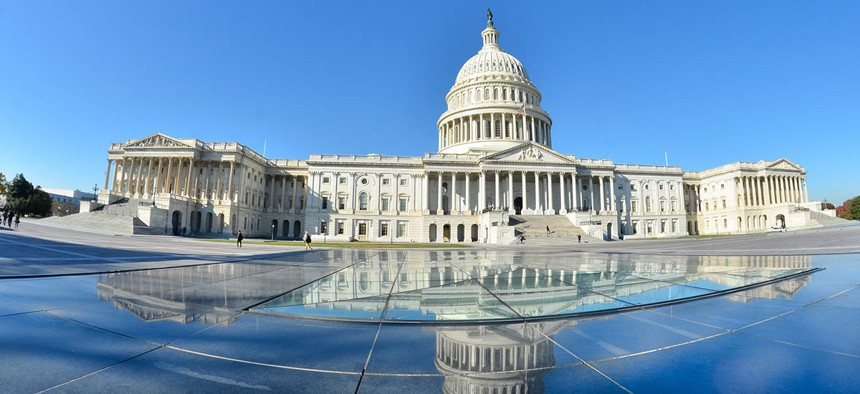Industry Group to Senate: Don't Drag Your Feet on IT Modernization Bill

Orhan Cam/Shutterstock.com
Failing to address the government’s legacy IT problem would be a major missed opportunity for the Senate, according to the head of a trade association.
Federal tech stakeholders will be watching the Senate intently when Congress comes back into session next week for signs it will pass meaningful legislation that addresses the government’s massive legacy technology problem.
Tech probably won’t be among Congress’ big priorities in the lame-duck session. Lawmakers still face votes to keep the government open, send emergency aid in the wake of Hurricane Matthew and other bills before it adjourns Dec. 16.
But failing to address the government’s legacy IT problem would be a major missed opportunity for the Senate, according to David Berteau, president of the Professional Services Council, a trade association based in Arlington, Virginia, which represents several hundred tech companies.
» Get the best federal technology news and ideas delivered right to your inbox. Sign up here.
In a Nov. 4 letter to a bipartisan cadre of Senate leaders, Berteau urged the body to take up the Modernizing Government Technology Act of 2016, which unanimously passed the House in September. Failing to do so would deprive federal agencies of a mechanism to update IT systems and a legislative vehicle to directly address cybersecurity concerns.
“When the Senate reconvenes later this month, we urge you to act promptly on a bill that can be signed into law,” Berteau said. “Congress and the executive branch should use this narrow window of opportunity to pass this important legislation and kick start the modernizing and upgrading of federal information technology as well as enabling the adoption of new technologies to help make government more effective.”
The version of MGT that passed the House combines elements from two prior proposals: the White House’s $3.1 billion IT Modernization Fund and the Modernizing Outdated and Vulnerable Equipment and Information Technology Act authored by Rep. Will Hurd, R-Texas.
MGT would create a central fund from which agencies could borrow against to modernize outdated systems, leaving the level of funding for the fund up to the discretion of appropriators. It would also create working IT capital funds within individual agencies, allowing them to bank away savings from successful modernization efforts.






